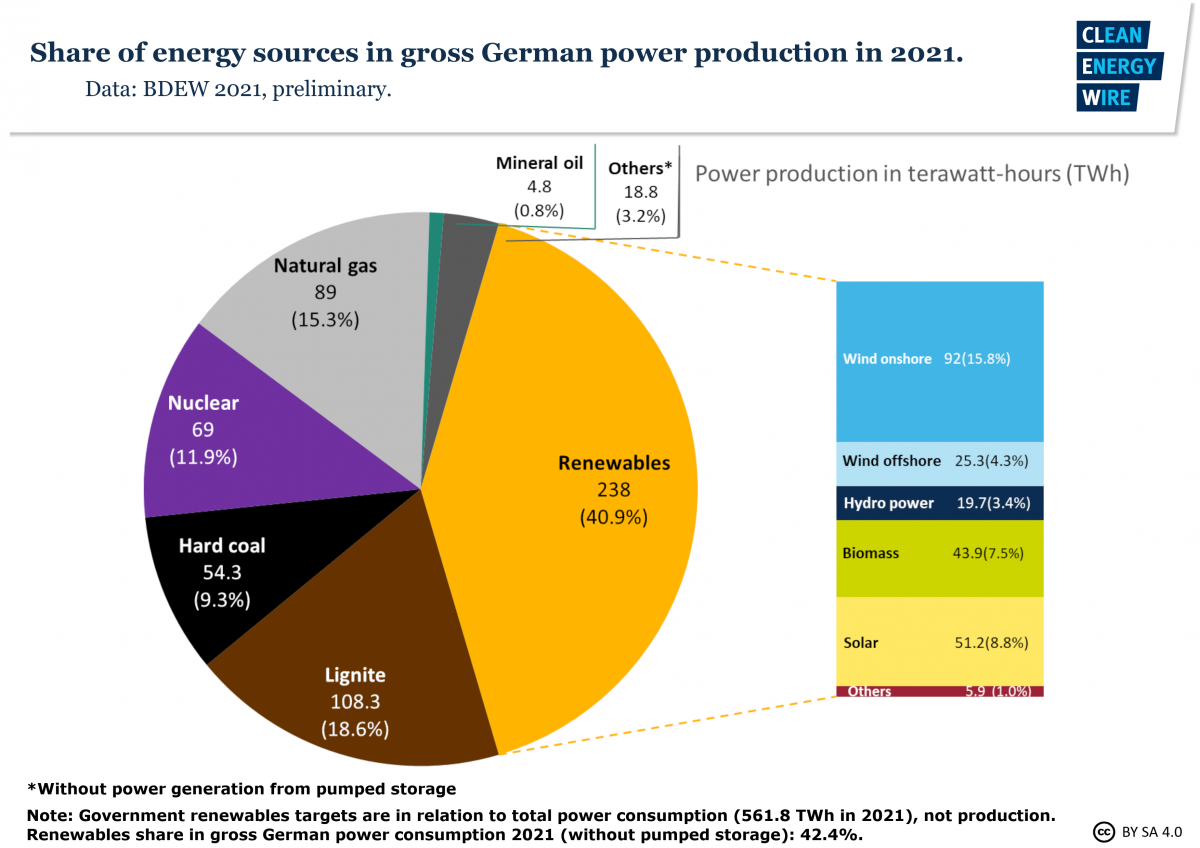Thessaloniki gets ready for its metro launch in November
The underground rapid transit lines have been under construction for almost two decades due to various project delays
 TheMayor.EU logo
TheMayor.EU logo According to the Ministry of Economic Affairs, Russian oil imports could be cut in half by this summer
According to a statement by the German Federal Ministry of Economic Affairs and Climate Action from today, Europe’s largest economy could halve Russian oil imports by the middle of 2022. In the case of natural gas, the country could become ‘largely independent’ by mid-2024.
According to data from the Clean Energy Wire from 2021, more than 40% of Germany’s energy mix is made up of fossil fuels like coal and natural gas. The country also has an infamous fuel import relationship with Russia that has been the cause for criticism over the years.
Germany imports around 40% of all its fossil fuels, including coal, gas and oil from Russia and that number was only set to rise with the planned opening of Nord Stream 2 this year. However, with the start of the war in Ukraine, authorities in Germany were forced to make a shift.

A chart showcasing the German energy mix, Source: Celan Energy Wire, CC BY-SA 4.0
The issue was compounded by pleas from Ukrainian officials and voices both in Germany and in the European community, calling for an end to Russian fossil fuel dependency for the continent.
According to the Ministry of Economic Affairs and Climate Action, Germany’s dependence on Russian coal imports will drop from 50% to 25% in the next few weeks. This rapid development is due to local energy producers reorganising their supply chains. By early summer, they say that the majority of operators would have dispensed with Russian hard coal and by autumn – Germany would be completely independent.
Furthermore, Germany’s dependence on Russian oil is also expected to drop to 25% quite rapidly, with officials saying that oil imports would be halved by the middle of the year. According to Vice-Chancellor and Economy Minister Robert Habeck, companies will let contracts with Russian suppliers expire without renewing them, instead, switching to other sources.
With the war in Ukraine disrupting supply lines, exports and imports, the issue of energy transition towards renewable sources in the European Union is now more pressing than ever. In Germany in particular, Economy Minister Habeck has explained that decoupling from Russia would take a massive joint effort – federal, state, local, private companies and households all need to work together.
He continued by saying that the country needs to expand renewables, consistently reduce consumption on all levels, diversify and ramp up hydrogen. If all these things coincide, experts from the Ministry believe that Germany could be largely independent of Russian gas by mid-2024.
This includes a speedy expansion of both Hydrogen and LNG infrastructure in the north of the country, with Hamburg set up to play a key role as one of the biggest hydrogen hubs.

The underground rapid transit lines have been under construction for almost two decades due to various project delays

Now you can get your wine in Talence by paying directly in Bitcoin

That’s because the state has to spend money on updating the railway infrastructure rather than subsidizing the cost of the popular pass

Rethinking renewable energy sources for the urban landscape

The examples, compiled by Beyond Fossil Fuels, can inform and inspire communities and entrepreneurs that still feel trepidation at the prospect of energy transition

Now you can get your wine in Talence by paying directly in Bitcoin

The 10th European Conference on Sustainable Cities and Towns (ESCT) sets the stage for stronger cooperation between the EU, national and local level to fast track Europe's transition to climate neutrality.

At least, that’s the promise made by the mayor of Paris, Anne Hidalgo

The underground rapid transit lines have been under construction for almost two decades due to various project delays

At least, that’s the promise made by the mayor of Paris, Anne Hidalgo

Hostal de Pinós is located in the geographical centre of the autonomous region

Despite its church-y name, the district has long been known as the hangout spot for the artsy crowds

Urban dwellers across the EU are having a say in making their surroundings friendlier to people and the environment.

Forests in the EU can help green the European construction industry and bolster a continent-wide push for architectural improvements.

Apply by 10 November and do your part for the transformation of European public spaces

An interview with the Mayor of a Polish city that seeks to reinvent itself

An interview with the newly elected ICLEI President and Mayor of Malmö

A conversation with the Mayor of Lisbon about the spirit and dimensions of innovation present in the Portuguese capital














